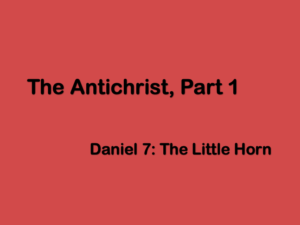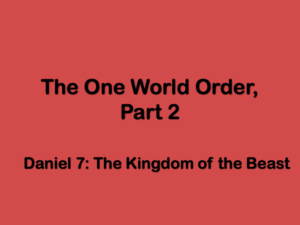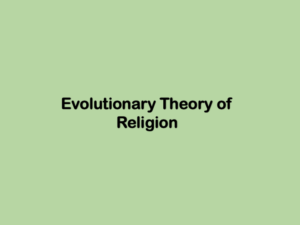What is Preterism? Part 2
In the previous post, we introduced preterism and discussed the key verses that support the imminency of the Kingdom of God. Preterists believe these passaged require the Parousia and the Second Kingdom to have occurred within the lifetime of the Apostles. In this post, we discuss the destruction of Jerusalem and how preterists interpret key topics in Biblical end times.

Preterists place a great deal of weight on the imminency of the second coming of Christ and the subsequent Kingdom of Heaven, a kingdom personally ruled by Jesus. They argue the text of the Bible dictates both of these events must have occurred within the lifetime of the Apostles, so they point to the destruction of Jerusalem by Roman legions as the time of fulfillment.
The Fall of Jerusalem
After the death and resurrection of Jesus, relations between the Jews and Rome worsened. In 66 AD, the Roman procurator, Gessius Florus, seized money from the temple in Jerusalem, inciting widespread rioting. Florus responded to the rioting by having Jewish leaders arrested, whipped and crucified. Armed revolt then broke out and the Roman garrison in Jerusalem was overwhelmed. This revolt led to an armed rebellion known as the First Jewish-Roman War.
In response, Roman forces based in Syria invaded Israel and were able to momentarily recapture Jerusalem before they were ambushed and destroyed by Judean rebels. Emperor Nero then tasked the general Vespasian and several Roman legions with pacifying the rebel nation. Vespasian successfully reestablished control of the northern territory of Galilee by 68 AD.
Emperor Nero died in 69 AD and Vespasian left Israel to return to Rome and claim the throne . He left behind his son, Titus, in charge of the Roman legions. The Roman forces surrounded Jerusalem and began a 7-month siege. In the summer of 70 AD, the Romans were able to breach the walls of Jerusalem. During the ensuing sack, the temple was destroyed and the city was burned. Most of the survivors were taken as slaves.
The Antichrist and the Kingdom of the Beast
Preterists argue that the destruction of Jerusalem fulfilled the prophecies of Daniel and Revelation. In their timeline, Rome becomes the Kingdom of the Beast and Nero becomes the Antichrist. The tribulation then becomes the First Roman Jewish War.
The destruction of Jerusalem certainly fulfills Jesus’ prophecy about the temple, but many of the details of Daniel and Revelation were not literally fulfilled. Chief of those was the second coming.
The Second Coming and The Kingdom of Heaven
The Kingdom of Heaven is a frequent topic and Daniel, Revelation and writings of other Old Testament prophets. When taken together, these verses describe a period when God will rule Earth in person. This kingdom will represent a return to the idyllic setting of Eden, when man and God lived and worked together in harmony.
In the New Testament, it is revealed that it is Jesus, as God, who will rule on Earth. As we discussed above, we also learned that Jesus taught the Kingdom of Heaven was imminent during his ministry.
However, Jesus did not return to physically rule the earth in 70 AD. Since Jesus predicted He would return to rule soon, preterists must argue a symbolic interpretation of the Kingdom of Heaven. Explanations vary, but one is Jesus returned in the clouds before returning to heaven, and the church is representative of Jesus’ rule on earth.
Replacement Theology
Preterism also tends to be closely intertwined with the doctrine of Replacement Theology, which argues that the Church replaced the nation of Israel in God’s covenants. In the Old Covenant, Israel was portrayed as the wife of God. He would protect and provide for her, in return, she would honor and obey Him. Israel, however, is frequently portrayed as an adulterous wife in the Old Testament, playing the harlot by worshipping other gods. Ultimately, Israel as a nation, was judged and punished for her unbelief, her worship of idols and other gods, and finally for the rejection of the Messiah.
In the New Testament, the Church is portrayed as the bride of Jesus. Replacement theologists believe all the previous promises God made to Israel were transferred to the Church. In the language of the Old Testament, God divorced the Jewish people and married a new bride, the Church. In the preterist view of the end times, Israel has no future role and the reappearance of Israel as a nation in recent years is an accident of history and has no prophetic significant.
Dating of the Book of Revelation
Scholars propose two dates for the book of Revelation. The majority support a later date, around 95 AD, during the reign of Emperor Domitian. A minority propose an earlier date, around 65 AD, during the reign of Emperor Nero. While there is evidence to support both claims, the evidence is not conclusive. For preterists, however, the date is important, since Rome was destroyed in 70 AD. If the Apostle John wrote Revelation during the reign of Domitian, as most scholars propose, then the prophecies of Revelation would not have been fulfilled with the destruction of Jerusalem, because the destruction occurred more than 20 years earlier than the writing of Revelation.
Who are Preterists?
Most churches do not discuss end times, but when they do, the majority of modern Christian denominations follow the preterist interpretation of scripture. This includes the Catholic and Orthodox traditions as well as the majority of the Protestant denominations. With some exceptions, most faith traditions that teach preterism also teach replacement theology. The minority of modern faith traditions, mostly evangelical and pentecostal traditions, teach the futurist interpretation.
The doctrine for these faith traditions tend to place the Church at the center of God’s plan for the future. It is the Church that replaced Israel in God’s Covenant, and it is the Church that represents Jesus’ presence and rule on earth. Ultimately the Church, through the spreading of the Gospel, will gradually return the earth to an Eden-like state.
What happens after the Church has created an idealistic earth is where some preterist differ. Full preterists argue that the Parousia occurred at 70 AD and Jesus figuratively or temporarily returned. Partial preterists argue that Jesus will return at some time in the future and physically rule for 1,000 years.
There are some problems with this interpretation, however. We will cover many of the details in posts dealing with specific passaged, but there are several, large picture objections.
One objection is Jesus did not return to rule on earth in 70 AD nor are we currently living in the Kingdom of Heaven. The Church has failed to return the earth to an idyllic Eden-like state. If anything, the earth appears to becoming increasingly violent and evil. God also made promises to the nation of Israel, some of which the text suggests were unconditional. Preterists argue that these promises were not unconditional, but were instead dependent on Israel’s continue obedience.
Perhaps the biggest support for a futurist interpretation is it provides an explanation for the above objections. The earth is becoming more violent and evil because we are witnessing the rise of a future totalitarian state. While the Church was the beginning of the Kingdom of Heaven, the Kingdom will not see full realization until Jesus returns physically at the end of the tribulation. Israel exists as a nation today, despite the implausibility of its existence, but it still has a role to play in God’s plan. He has not abandoned Israel. Jesus, when he physically returns, will rule from Jerusalem.
While I personally believe the futurist interpretation provides a better, text-based interpretation of the Bible, as well as being a better model to explain the current world, I also acknowledge that salvation does not depend on your end-times views, it depends solely on belief and obedience in Christ. Biblical prophecy is complicated and confusing, and no one school of interpretation will get every interpretation right. Just as the prophecies concerning the first coming of the Messiah did not become clear until after the fact, many details of the end times will remain uncertain until those times are upon us. I do believe we are expected to study and discuss end times so we are aware of events around us and your interpretation of end times views deeply influence how you view and interpret recent events.
In the next post, we’ll take a deep dive into Futurism. Let me know what you think in the comments! I’d especially love to hear from any preterists who would like to further argue their point of view.







